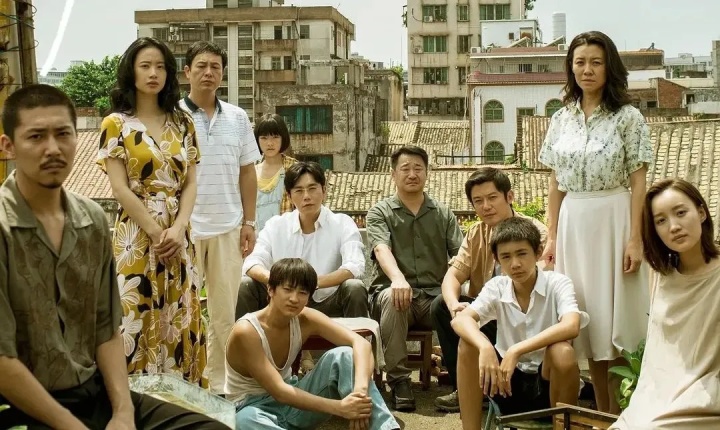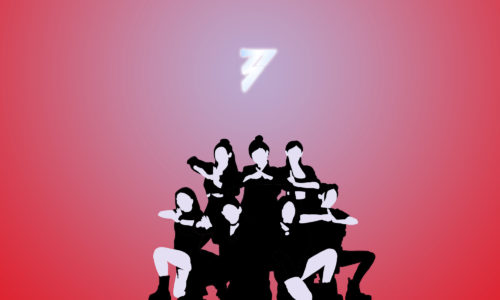‘The Bad Kids’: iQIYI’s refreshing, violent web series
Or: The story of how “Shall we go hiking together?” became a meme and a euphemism for murder.

It began with a push. Zhang Dongsheng, a placid math teacher, has hiked with an old couple to the summit of a dramatic mountain in China’s southern Guangxi Province. It’s a gentle, unassuming opening scene to The Bad Kids (隐秘的角落 yǐnmì de jiǎoluò), the new web series from iQIYI, one of China’s leading online video streaming sites. “Dad, lean closer to Mom,” murmurs Zhang, gazing through a Nikon camera, the couple framed by the spectacular view below. He arranges their pose just so. Then, with a quick sigh, he shoves them off the cliff.
It hooked the whole country. Just 12 days after the first episode aired, the series’ hashtag garnered 3.93 billion hits on Weibo, China’s version of Twitter. Celebrities have lent their voice to the chatter, and, “Shall we go hiking together?” became both a meme and a murderous euphemism.
Chinese crime dramas are usually slushy and slow. Handsome celebrities play police officers who, in between beating up baddies, live the high-life in swish penthouse apartments, far removed from the lives of middle-class viewers. Pacing is ponderous and subtext nonexistent beyond cutesy romances. Acting quality is sacrificed during casting if a famous face drums up more viewers.
The Bad Kids (also translated as “The Hidden Corner”) is a gripping changeling by comparison, following the events sparked by three children who accidentally film Zhang’s push. Nordic noir seems to have been an inspiration: First, the characters are ordinary. They could be from any street in south China, played by talented unknowns. A single mother trying to balance her long-distance job with time for her son Zhu Chaoyang, but placing studies above his unhappy school life. Two vagrant children fleeing a state children’s home in search of their surviving relations. A dissatisfied cop, pot-bellied and nearing retirement, shackled with a screaming granddaughter and a wife sulking that he won’t come dancing with her.
Second, violence bubbles beneath the surface of an everyday community. The town of “Ningzhou” may be fictional, but Liufeng Mountain, the scene of Zhang’s parricide, is real and located in southern Guangxi Province (leading scenic area personnel to insist that all viewing spots had guard rails). Ningzhou is a crowded and dirty summer setting, complete with screeching cicadas, squat toilets, and sweaty faces. Violent deaths can happen in a school courtyard before break or a darkened cold-storage warehouse.
Finally, it raises questions about society. Debate has been sparked amongst netizens over content — the obligations of family ties, the shortcomings of social care, the importance of parental influence on children.
Take discussions on Zhou Chunhong, the tough-love mother of Zhu Chaoyang. She believes her parental role is to feed Zhu, dedicating himself entirely to his studies in return. Many Douban users see her as a classic single Chinese mother, expecting her son to work as hard as she is for him. But some argue that this is smothering love, driving a child to focus on his studies and become a future social outcast. Others point out that his divorced absentee father is equally guilty in forging Zhu’s unhappy childhood. Why should so much pressure be placed on the mother?
But it’s quite mild when stood next to the horrors of the likes of 2016 Finnish drama Bordertown. Yet Chinese viewers thrill at a home-grown drama as addictive as any of the Western offerings popular in the country. “After watching American and British dramas for so many years,” says actress Zhāng Ziyí 章子怡 (star of Crouching Tiger, Hidden Dragon), “finally [there’s] a Chinese drama that could compete with them.”
It’s a win for iQIYI, one of China’s biggest online streaming services, busy drawing viewers to its platform with Western-style dramas. The country’s cinemas remaining shuttered only added to the draw.
But the demands of the censor means the script has been lightened when adapted from the novel Bad Kids by Zǐ Jīnchén 紫金陈. Zhang’s deeds in the series are peppered with redeeming qualities. The children of the book are true delinquents, sinking to acts even worse than Zhang’s. But since protagonists must be role models in Chinese TV, they become fallen angels who slowly learn that truth, friendship, and cooperation are better than lies, isolation, and misdemeanors.
But social media is awash with speculation that an unhappy, darker ending has been smuggled in under the censor’s nose. It all rests on a conversation between Zhang and Zhu Chaoyang over two separate origin stories of a Descartes math puzzle. Do you prefer your stories happy or sad, fairytale or reality? We’ll stop here to avoid spoilers.
Producers keenly eyeing trends will be watching the success of The Bad Kids with interest. Expect copycat dramas soon. Perhaps this is the start of something subtler than The Killing, et al.: a “Chinese noir,” where viewers dig up the darkness for themselves.
Watch the show here (English subtitles available).





